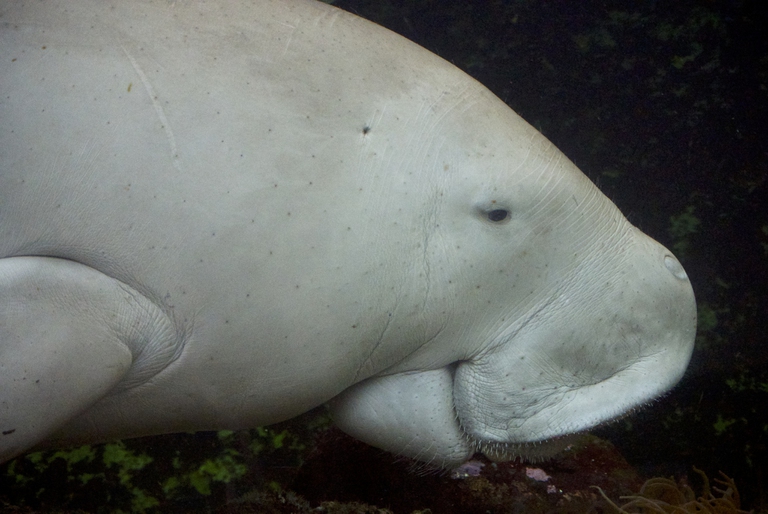
Our species took its first steps in a world covered in trees. Today, forests offer us sustenance, shelter, and clean the air that we breathe.
If you’ve never heard about the dugong, don’t worry. It is one of the least known marine mammals – very similar to Florida’s manatee – and a shy creature populating the Pacific and Indian Oceans. The calm waters surrounding Okinawa Island, Japan, are home to this rare mammal species, which is particularly dear to the
If you’ve never heard about the dugong, don’t worry. It is one of the least known marine mammals – very similar to Florida’s manatee – and a shy creature populating the Pacific and Indian Oceans.
The calm waters surrounding Okinawa Island, Japan, are home to this rare mammal species, which is particularly dear to the Japanese population.
The Okinawa dugong is now threatened by a project for the construction of an American military base in their habitat.
During the Second World War, Okinawa Island was occupied by Americans. Though the area was formally returned to Japan’s control in 1972, the US’ military presence in the area keeps being solid.
Dugongs’ habitat thus risks to be wiped out as Washington’s and Tokyo’s governments are negotiating for the construction of an American base in Henoko Bay, an uncontaminated area precious to the dugong.
Not only the construction of the base could threaten this marine mammal’s natural habitat, but also water pollution, noise and light pollution could bring it closer to extinction.
Okinawa’s new Governor stands in favour of the local population, which has been opposing the partnership for the military base construction for many years.
Defying Tokyo, Takeshi Onaga is starting a fight for the conservation of the cultural and natural heritage of this area, of which the dugong is an essential part. This is a fight for human rights of Okinawan citizens, which no longer accept to be exchanged in the name of international diplomacy.
Siamo anche su WhatsApp. Segui il canale ufficiale LifeGate per restare aggiornata, aggiornato sulle ultime notizie e sulle nostre attività.
![]()
Quest'opera è distribuita con Licenza Creative Commons Attribuzione - Non commerciale - Non opere derivate 4.0 Internazionale.
Our species took its first steps in a world covered in trees. Today, forests offer us sustenance, shelter, and clean the air that we breathe.
Poachers in Africa are encroaching on wildlife land and killing rhinos in travel hot spots now devoid of visitors due to the coronavirus pandemic.
Actor and environmental activist Leonardo DiCaprio has contributed two million dollars to a fund to protect Virunga National Park in Congo from threats such as terrorism, the coronavirus and poaching.
For the first time in seventeen years, Iceland’s two main whaling companies won’t resume whale hunting. The announcement concerns this year’s season but could carry into the future.
The relationship between the coronavirus and wildlife is complex: while the pandemic may lead to a reduction in the illegal trade in wild animals, it may also encourage it in other respects.
The largest coral reef in the world is severely threatened by climate change, but researchers are developing strategies that could contribute to saving the Great Barrier Reef.
NGO Free the Bears has opened a mountain sanctuary for moon bears in Laos. With the government’s help, it aims to close all bile farms by 2022.
Seychelles have extended its marine protected area, which now covers over 400,000 square kilometres, an area larger than Germany.
The tapir was reintroduced into Brazil’s Atlantic Forest, the country’s most at-risk ecosystem. The species can play a key role in the forest’s recovery.








